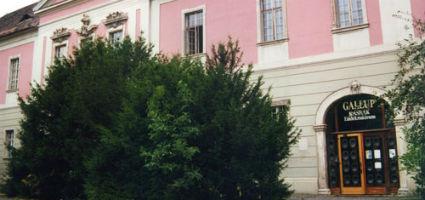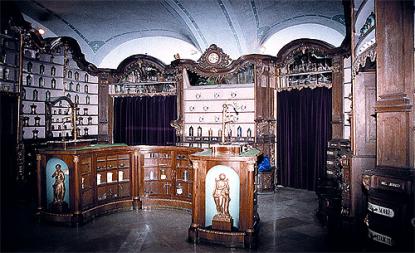2025. January 3. Friday
Kassák Museum - Budapest
 |
Address: 1033, Budapest Fő tér 1., Zichy kastély
Phone number: (1) 368-7021
E-mail: kassakmuzeum@pim.hu
Opening hours: Wed 10-17, Thu 12-19, Fri-Sun 10-17
|
The exhibition has closed for visitors.
2003.09.28. - 2004.03.07.
Museum tickets, service costs:
|
Ticket for adults
|
800 HUF
|
|
|
Ticket for students
|
400 HUF
|
|
|
Ticket for pensioners
|
400 HUF
|
|
|
Ticket for families
|
400 HUF
|
Those wanting to recall her person most of the times quote from Attila József's poem written about her: "She was found ou by lonely men". When on 25th September 1938 Anna Kéthly was holding a burrial speech, she, searching for the causes of the tragedy, also quoted this linen from the poem. The artist Kassák could never recover from that what happened his wife in their kitchen under 19/a Bulcsu street. 25 years later, in the same month of tragedy, the old man wrote the poem recalling the history of their relationship, which was entitled Requiem for a woman.

Jolán Simon was not only a companion, wife and mother, but also well known performer of the 1920'ies. On her first performing evenings she was reciting the poems of Mátyás György, Sándor Barta, Mózes Kahána and Árpád Szakál. From 1920 on she was even braver, for she travelled to Wien, Prague, Ungvar and Berlin and recited the works of Kassák, Sándor Barta, Hans Arp, Kurt Schwitters, Richard Huelsenbeck, Ivan Goll, Hugo Ball. These she supplemented by some works of Apollinaire, Blaise Cendrars, Marcel Lecomte and some negro tales and folk songs. The literature produced around the periodical Ma became famous in Wien and through this in Hungary as well. And it is mostly to be put down to her performance there.
From 1928 she was dealing with the thoughts of a new enterprise. She was leading the reciting choir of the Munka-group. In the next 5 years she spent most of her time in introducing this new kind of stage branch in Hungary.
However, the reciting choir was banned in 1932. The Munka-group was fallen apart. A hard period was to be faced by Jolán Simon at this time. Although she was struggling against want and hardships in all of her life, she could not bear whet she experienced through the examination of the life in need of government support (she was commissioned as a social well-being agent at the time). She found no hope to herself, either. On 25th September 1938 she drank spirits and opened the gas tap in the kitchen.

Jolán Simon was not only a companion, wife and mother, but also well known performer of the 1920'ies. On her first performing evenings she was reciting the poems of Mátyás György, Sándor Barta, Mózes Kahána and Árpád Szakál. From 1920 on she was even braver, for she travelled to Wien, Prague, Ungvar and Berlin and recited the works of Kassák, Sándor Barta, Hans Arp, Kurt Schwitters, Richard Huelsenbeck, Ivan Goll, Hugo Ball. These she supplemented by some works of Apollinaire, Blaise Cendrars, Marcel Lecomte and some negro tales and folk songs. The literature produced around the periodical Ma became famous in Wien and through this in Hungary as well. And it is mostly to be put down to her performance there.
From 1928 she was dealing with the thoughts of a new enterprise. She was leading the reciting choir of the Munka-group. In the next 5 years she spent most of her time in introducing this new kind of stage branch in Hungary.
However, the reciting choir was banned in 1932. The Munka-group was fallen apart. A hard period was to be faced by Jolán Simon at this time. Although she was struggling against want and hardships in all of her life, she could not bear whet she experienced through the examination of the life in need of government support (she was commissioned as a social well-being agent at the time). She found no hope to herself, either. On 25th September 1938 she drank spirits and opened the gas tap in the kitchen.
|
Related activities
|
|||

